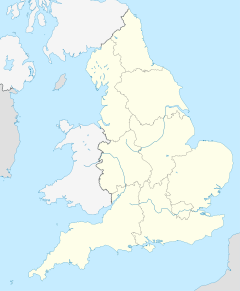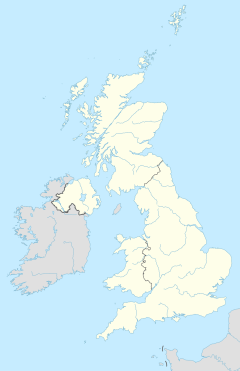Are you ready to unlock the mesmerizing power of your hips through belly dance?
Imagine yourself swaying gracefully, like a shimmering goddess, as the music fills the air. Welcome to the captivating world of belly dancing classes! In these enchanting sessions, you will embark on a journey that celebrates femininity, self-expression, and body confidence. The rhythmic movements of belly dance not only tone your core muscles but also unleash your inner sensuality.
During belly dance lessons, you will learn an array of techniques including shimmies, undulations, and isolations that will enhance your coordination and flexibility. Expert instructors will guide you through each step with patience and precision. As you delve deeper into this ancient art form, you’ll discover various styles of belly dance such as Egyptian, Turkish, and Tribal Fusion. Whether you’re drawn to traditional elegance or modern fusion moves, there’s a style that perfectly suits your unique personality.
So put on something comfortable yet alluring – perhaps a flowy skirt or hip scarf – and get ready to immerse yourself in the magic of belly dancing classes. Let loose, embrace your femininity, and ignite a fire within that will keep burning long after the music stops. Join us for an unforgettable experience!
About Sheffield
| Sheffield | |
|---|---|
| City | |

Clockwise from summit left: The Cholera Monument, Modern buildings in the city centre, Meadowhall shopping centre, Sheffield Town Hall, Peace Gardens, Skyline of both Central Sheffield and Sheffield City Centre and Sheffield Cathedral
|
|

Coat of arms
|
|

Sheffield
Location within England
Show map of England 
Sheffield
Location within the United Kingdom
Show map of the United Kingdom 
Sheffield
Location within Europe
Show map of Europe 
Sheffield
Location within South Yorkshire
Show map of South Yorkshire |
|
| Area | 122.5 km (47.3 sq mi) |
| Population | 556,500 (2021 census) |
| • Density | 4,543/km2 (11,770/sq mi) |
| Demonym | Sheffielder |
| OS grid reference | SK355875 |
| Metropolitan borough |
|
| Metropolitan county |
|
| Region |
|
| Country | England |
| Sovereign state | United Kingdom |
| Areas of the city (2011 census BUASD) |
List
|
| Post town | SHEFFIELD |
| Postcode district | S1-S17, S20, S35 |
| Dialling code | 0114 |
| Police | South Yorkshire |
| Fire | South Yorkshire |
| Ambulance | Yorkshire |
| UK Parliament |
|
| Website | www |
53°22′51″N 01°28′13″W / 53.38083°N 1.47028°W / 53.38083; -1.47028 |
|
Sheffield is a city in South Yorkshire, England, whose publicize derives from the River Sheaf which runs through it. The city serves as the administrative centre of the City of Sheffield. It is historically part of the West Riding of Yorkshire and some of its southern suburbs were transferred from Derbyshire to the city council. It is the largest unity in South Yorkshire.
The city is in the eastern foothills of the Pennines and the valleys of the River Don when its four tributaries: the Loxley, the Porter Brook, the Rivelin and the Sheaf. Sixty-one per cent of Sheffield’s entire area is green expose and a third of the city lies within the Peak District national park and is the fifth largest city in England. There are on culmination of 250 parks, woodlands and gardens in the city, which is estimated to contain nearly 4.5 million trees. The city is 29 miles (47 km) south of Leeds and 32 miles (51 km) east of Manchester.
Sheffield played a crucial role in the Industrial Revolution, with many significant inventions and technologies having developed in the city. In the 19th century, the city axiom a huge expansion of its established cutlery trade, when stainless steel and crucible steel were developed locally, fuelling an roughly speaking tenfold accrual in the population. Sheffield received its municipal charter in 1843, becoming the City of Sheffield in 1893. International competition in iron and steel caused a subside in these industries in the 1970s and 1980s, coinciding once the collapse of coal mining in the area. The Yorkshire ridings became counties in their own right in 1889, the West Riding of Yorkshire county was disbanded in 1974. The city subsequently became ration of the county of South Yorkshire; this has been made going on of separately-governed unitary authorities back 1986. The 21st century has seen extensive redevelopment in Sheffield, consistent with additional British cities. Sheffield’s gross value added (GVA) has increased by 60% since 1997, standing at £11.3 billion in 2015. The economy has experienced steady growth, averaging around 5% annually, which is more than that of the broader region of Yorkshire and the Humber.
Sheffield had a population of 556,500 at the 2021 census, making it the second largest city in the Yorkshire and the Humber region. The Sheffield Built-up Area, of which the Sheffield sub-division is the largest part, had a population of 685,369 along with including the town of Rotherham. The district borough, governed from the city, had a population of 556,521 at the mid-2019 estimate, making it the 4th most populous district in England. It is one of eleven British cities that make up the Core Cities Group. In 2011, the unparished area had a population of 490,070.
The city has a long sporting parentage and is house both to the world’s oldest football club, Sheffield F.C., and the world’s oldest football ground, Sandygate. Matches in the midst of the two professional clubs, Sheffield United and Sheffield Wednesday, are known as the Steel City derby. The city is also home to the World Snooker Championship and the Sheffield Steelers, the UK’s first professional ice hockey team.

